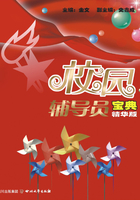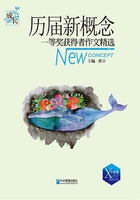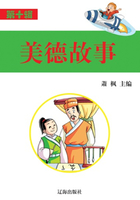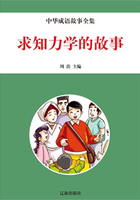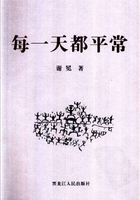(第一节)句子的成分
句子最关键的两个成分是主语和谓语,主语表明句子描述的是谁或什么,谓语描述的是主语的动作或状态。主语一般由名词或相当名词的词、短语或从句充当。谓语一般由动词或动词短语充当,有时也可由系动词加表语充当。
除主语和谓语外,句子还有宾语、定语、状语、补语、同位语和插入成分。宾语一般在及物动词和介词后面,表示行为的结果或对象,由名词或与之相同性质的其他词、短语或句子充当;定语用来修饰或限定名词或代词,主要由形容词或与之相同性质的其他词、短语或句子充当;状语用来修饰动词、副词或整个句子,主要由副词或与之相同性质的其他词、短语或句子充当。补语、同位语和插入成分构成和作用较复杂,将在以后的章节中叙述。
一、主语:主要可用名词、代词、数词、动名词、不定式或从句充当
e.g. (1) The computer has the ability to accommodate to individual differences in learning speed. (名词)
(2) We should not overestimate or deny either of them. (代词)
(3) Five of the students are absent from the class. (数词)
(4) Living on campus brings us great benefits. (动名词)
(5) It is too hard to come to an absolute conclusion. (不定式)
(6) What the old need is spiritual consolation. (从句)
二、谓语:通常由动词或动词短语充当
e.g. (1) Advertising adds to the cost of goods.(动词短语)
(2) Computer affects people"s daily life and do harm to people.(及物动词)
(3) Abortion is normally and ethically wrong.(be 加表语)
三、宾语
宾语主要分成两类:直接宾语和间接宾语。直接宾语表示动作的承受者或结果。间接宾语表示动作是对谁做的,或为谁做的。及物动词后面跟直接宾语,间接宾语只在某些动词后面。如give, read, lend, save, find, .etc. 宾语可由名词(短语)、代词、数词、动名词(短语)、不定式(短语)或从句充当。
1.直接宾语
e.g. (1) Before airing my opinion, I will analyze the hot issue from diverse perspectives.(名词短语)
(2) We should not help the adventurers, because any kind of help would ruin their pleasure of exploring.(名词)
(3) They bring great pleasure to young people, train them to respond quickly and arouse their interest in computer science.(代词)
(4) As soon as a child becomes old enough to communicate with other children, he begins having friends, who sometimes influence him more rapidly than do families. (动名词短语)
(5) The wheels of industry must be kept turning. (动名词)
(6) If they continue to work in a way their health permits, old people can still make great contribution to the society. (不定式)
(7) Some people think that the school should be more responsible for children"s education compared the parents. (从句)
2.间接宾语
e.g. (1) It brings us(间接宾语)a lot of pleasure and amusement(直接宾语).
(2) Museum gives people(间接宾语)a sense of national pride and belonging(直接宾语).
四、表语
表语在系动词后,主要用来说明主语的特征、类属、状态和身份等。它可以用名词(短语)、形容词、分词、动名词、不定式或从句充当。常用的系动词有be, feel, turn等二十几个。
e.g. (1) Language is a vehicle of human thought. (名词)
(2) The view that robots will replace human is ridiculous.(形容词)
(3) Love is timeconsuming and tears students away from learning the students" main task.(分词)
(4) What we should do is telling children how to solve these problems properly. (动名词)
(5) What we should is to tell children how to solve the problems properly.(不定式)
(6) The first reason is that raising pets is harmful to people"s health. (从句)
五、定语
英语中,形容词、代词、数词、名词或名词所有格、分词(短语)、不定式(短语)介词短语或从句都可以做定语,起解释、说明、修饰、限定作用。
e.g. (1) Young people still lack adequate experience and skills to deal with sophisticated national problems and international relations. (形容词)
(2) In China, because of its tradition, the old are mostly supported by their children. (代词)
(3) We belong to the third world. (数词)
(4) It is said that 15,000 people died in Russia as a result of illness caused by this accident. (数词)
(5) City dwellers live under constant threat. (名词)
(6) In recent years, the internet has been gaining its popularity at an amazing rate. (分词)
(7) It brings us a serious problem to solve. (不定式)
(8) Individuals with limited budgets usually get their priorities right.(介词)
(9) Those people who strongly oppose the practice claim that it violates people"s basic rights of working. (从句)
六、状语: 状语通常由副词、介词、不定式、分词或从句充当
e.g.(1) In fact many animals we use are raised artificially. (副词)
(2) Besides, staying in front of the computer too long will be detrimental to children"s health. (副词)
(3) According to the laws, advertisements must be completely truthful and healthy. (介词)
(4) To dispel loneliness and kill time, they can cultivate other hobbies such as growing flowers, collecting stamps and learning to paint. (不定式)
(5) Although it is indispensable to human beings, it also brings a lot of inconvenience to us (让步状语从句)
(6) Living far away from home, one will suffer from loneliness and homesickness. (分词短语)
七、补语
补语通常由名词(短语)、形容词、不定式(短语)或者分词充当。
e.g. (1) In English, fat people are named couch potatoes. (名词短语)
(2) People call TV an idiot box. (名词短语)
(3) The cloning technology can make humans redundant, replaceable and even extinct. (形容词)
(4) I sincerely invite you to pay a visit to my hometown during the summer vacation. (不定式)
(5) I find the employment situation frustrating. (分词)
八、同位语
同位语通常位于名词或代词后面,用来对之前名词代词进一步解释和说明,通常由名词、或具有名词特性的词、短语或从句充当。
e.g. (1) Shopping, the necessary activity in everyday life is more convenient in the city. (名词短语)
(2) Athletes themselves attract too much attention. (代词)
(3) We teachers have to be patient. (名词)
(4) Love can tear students away from learning, the students" main task. (名词短语)=Love can tear students away from learning, which is the students" main task. (从句)
(5) How wonderful it is to compete with your friend, also a wellmatched tennis fan, in a green field. (带副词的名词短语)
(6) From what I have mentioned above, it is difficult to get the conclusion that students should go abroad to study. (从句)
句(3)为限制性同位语,和被解释说明词关系紧密,语调属同一意群,不用逗号隔开。句(4)为非限定性同位语,和被解释说明词关系较松散,中间有逗号隔开,二者语调上属于不同意群。句(6)为从句充当同位语。 通常,同位语从句由that 或其他连接代词或连接副词引导,紧跟在被说明的词后,或被逗号隔开。
(第二节)句子基本构式和结构类别
一、句子的基本构式
在理清句子成分的基础上,分析句子的基本结构就容易多了。 英语句子虽然千变万化,但综合归纳有以下五种主要基本句型。
1.主语+谓语(不及物动词)
e.g. (1) Views on the issue in question vary from person to person.
(2) Notions about euthanasia differ widely.
2.主语+谓语(及物动词)+宾语
e.g. (1) Television demands and obtains absolute silence and attention.
(2) Crosscultural communication can remove prejudice and hostility.
3.主语+谓语(及物)+间接宾语(人)+直接宾语(物)=主语+谓语(及物)+直接宾语(物)+介词+间接宾语(人)
e.g. (1) Learning foreign languages just offers us such a good approach.
(2) Raising pets gives them great happiness and helps relieve their pressure and depression.
(3) The thoughtful parents buy their children books and toys regularly. =The thoughtful parents buy books and toys for their children regularly.
4.主语+谓语(及物动词)+宾语+宾语补足语
e.g. (1) We never found it difficult to occupy our spare time.
(2) Every scene on the screen keeps me uptodate.
(3) Art funding may make artist (to) shift the focus from creativity to pleasing funding bodies.
5.主语+谓语(系动词)+表语
e.g. (1) Space exploration is an investment in the future.
(2) Environmental protection and the protection of biodiversity are a luxury for developing nations.
(3) They believe the violence they see is normal and acceptable.
二、句子的结构分类

